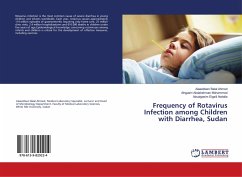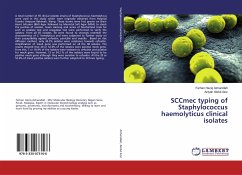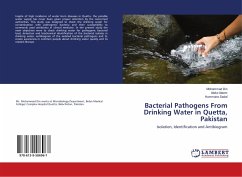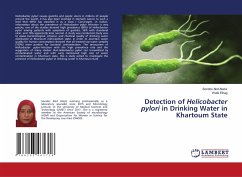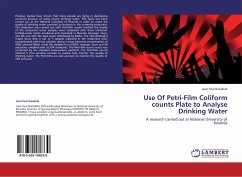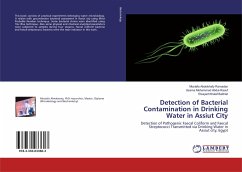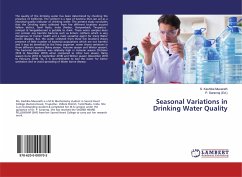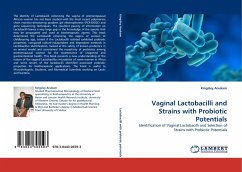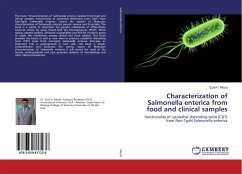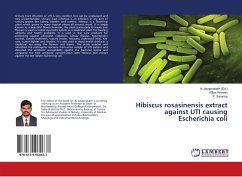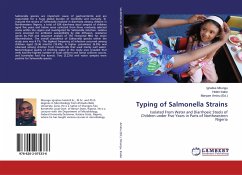
Typing of Salmonella Strains
Isolated From Water and Diarrhoeic Stools of Children under Five Years in Parts of Northwestern Nigeria
Herausgegeben: Aminu, Maryam
Versandkostenfrei!
Versandfertig in 6-10 Tagen
36,99 €
inkl. MwSt.

PAYBACK Punkte
18 °P sammeln!
Salmonella species are important cause of gastroenteritis and are responsible for a huge global burden of morbidity and mortality. To evaluate the strains of Salmonella involved in diarrhoea among children in Northwestern Nigeria, a total of 634 diarrhoea stool samples of children aged five years and below were collected from three randomly selected states within the region and investigated for Salmonella infection. Isolates were screened for antibiotic susceptibility by disk diffusion, resistance genes by PCR and sequence analysis of 16S ribosomal RNA for strain determination. The overall pre...
Salmonella species are important cause of gastroenteritis and are responsible for a huge global burden of morbidity and mortality. To evaluate the strains of Salmonella involved in diarrhoea among children in Northwestern Nigeria, a total of 634 diarrhoea stool samples of children aged five years and below were collected from three randomly selected states within the region and investigated for Salmonella infection. Isolates were screened for antibiotic susceptibility by disk diffusion, resistance genes by PCR and sequence analysis of 16S ribosomal RNA for strain determination. The overall prevalence of Salmonella species within the study area was 4.1%. The highest frequency of infection occurred among children aged 25-36 months (10.4%). A higher prevalence (6.5%) was observed among children from households that used mainly well water. Bacteriological quality of drinking water in the study area revealed that wells had the highest number of total coliform and faecal coliform counts, and boreholes had the lowest. Two (2.22%) well water samples were positive for Salmonella species.



